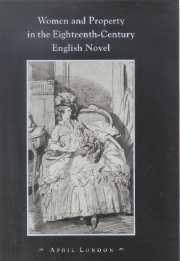Book contents
- Frontmatter
- Contents
- Acknowledgements
- Introduction
- PART I SAMUEL RICHARDSON AND GEORGIC
- PART II PASTORAL
- PART III COMMUNITY AND CONFEDERACY
- PART IV THE POLITICS OF READING
- Introduction
- 9 The discourse of manliness: Samuel Jackson Pratt and Robert Bage
- 10 The gendering of radical representation
- 11 History, romance, and the anti-Jacobins' “common sense”
- 12 Jane West and the politics of reading
- Epilogue
- Notes
- Bibliography
- Index
11 - History, romance, and the anti-Jacobins' “common sense”
Published online by Cambridge University Press: 14 October 2009
- Frontmatter
- Contents
- Acknowledgements
- Introduction
- PART I SAMUEL RICHARDSON AND GEORGIC
- PART II PASTORAL
- PART III COMMUNITY AND CONFEDERACY
- PART IV THE POLITICS OF READING
- Introduction
- 9 The discourse of manliness: Samuel Jackson Pratt and Robert Bage
- 10 The gendering of radical representation
- 11 History, romance, and the anti-Jacobins' “common sense”
- 12 Jane West and the politics of reading
- Epilogue
- Notes
- Bibliography
- Index
Summary
The mutual dependency that characterizes the relation of conservative to radical 1790s fiction owes much to the shared concern with audience and reading practices that so absorbed writers of the revolutionary decade. In the Dedication to his conservative novel, The Vagabond (1799), George Walker touches on one of the consequences of this authorial preoccuption with readers: “I might observe with the late Lord Orford”, he writes, “that Romances are only Histories which we do not believe to be true, and Histories are Romances we do believe to be true”. The questions of credibility and credulity to which his assertion refers surface repeatedly in the writings of the 1790s. Behind them lie the assumption of a broad and receptive reading public whose varied abilities and loyalties were open to definition by writers bidding for their attention. To the Jacobins, such an audience represented opportunity; as Paine says, “such is the irresistible nature of truth, that all it asks, and all it wants, is the liberty of appearing”. In a similar vein, Godwin's powerful metaphorical rendering of the Jacobin doctrine of perfectibility imagines “ten thousand men of sound intellect, shut up in a madhouse, and superintended by a set of three or four keepers”, whose “chains fall off of themselves when the magic of opinion is dissolved” under the influence of the communication of ideas.
To the conservatives, however, these newly politicized readers represented danger precisely because of their openness to the communication of ideas, an opennness the anti-Jacobins narrativized as an uncritical susceptibility to story-telling.
- Type
- Chapter
- Information
- Women and Property in the Eighteenth-Century English Novel , pp. 169 - 184Publisher: Cambridge University PressPrint publication year: 1999



